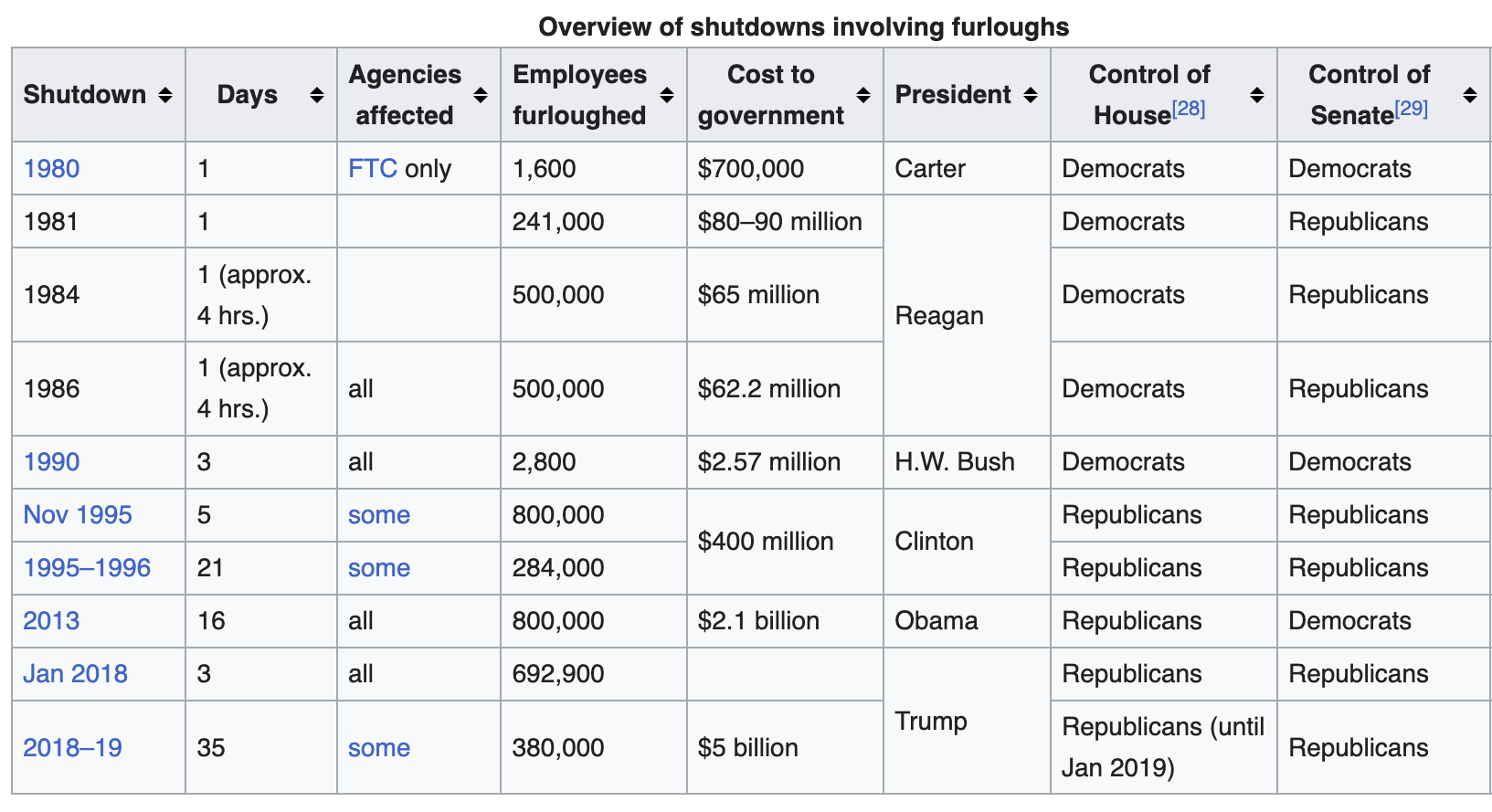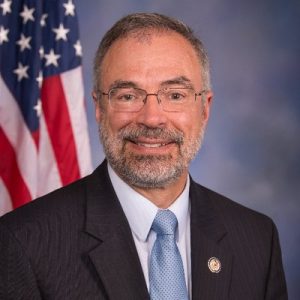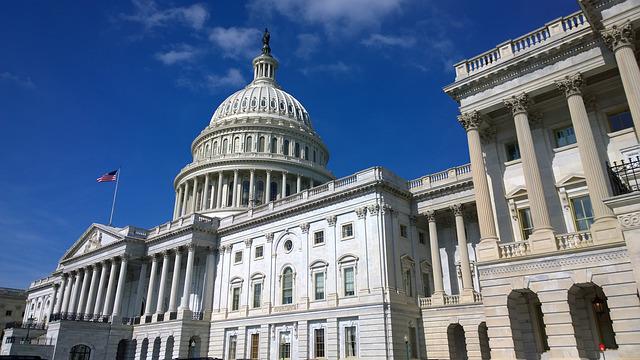Will the government shutdown at the end of the month?
About two-and-half weeks remain until the government runs out money and absent swift action from Congress a shutdown will occur at midnight on Sep. 30.
To keep the government open, Congress is expected to try to pass a stopgap funding bill known as a Continuing Resolution (CR). A CR maintains government funding at current fiscal year levels.
The Democratic-controlled Senate moved all 12 annual appropriations bills out of committee before the August recess and did so on a bipartisan basis. The Senate has begun taking procedural votes on several of the bills.
The GOP-controlled House of Representatives has passed one appropriations bill. The fate of the rest of the bills are unclear, and if an agreement is ultimately reached, it could still take until the end of the year for the bills to clear both chambers.
Members of the ultra-conservative House Freedom Caucus (HFC) have said that a CR might be too much to swallow unless certain demands are met. They want to reduce government funding levels back to what they were in 2022, allocate more money for border security, cut funds for Department of Justice investigations they deem politically “weaponized” in nature, as well as Department of Defense initiatives they consider “woke.” Those proposals likely would be dead on arrival in the Senate.
Other contentious issues include additional funding for Ukraine, domestic disaster aid relief, and the launch of an impeachment inquiry into President Joe Biden, which House Speaker Kevin McCarthy (R-Calif.) announced on Tuesday.
There appears to be little appetite in the Senate for an impeachment trial. But McCarthy could potentially gain some extra Republican votes to keep the government open simply by having given the green light for the inquiry.
But McCarthy is still in a precarious position. Passing a CR might very well require a sizable number of Democrats to cross party lines and vote with rank-and-file Republicans. This likely would in turn anger some of his own members who are either with or aligned with the HFC.
It also could put McCarthy’s speakership in jeopardy. Earlier this year, it took 15 votes for McCarthy to be elected speaker. In order to gain support from HFC members, McCarthy agreed to a proposal that allowed for just one member to call for a vote on a motion to vacate the chair and elect another speaker. That could come to fruition if just a handful of Republicans voted alongside the chamber’s 212 Democrats.
So how is this all likely to play out? How likely is a government shutdown?
“Will we shutdown? I am worried that we will just because the Republicans have done this before,” Rep. Dutch Ruppersberger (D-Md.) told Baltimore Post-Examiner.
The last government shutdown occurred during the Trump administration and lasted for 34 days. It was the second shutdown under that administration and the longest in U.S. history. It cost the economy an estimated $11 billion.

(Twitter)
Ruppersberger, who sits on the House Appropriations Committee, said Republicans are again trying to inject idealistic wishlist items into the appropriations process that are unlikely to become law and also are not in the country’s best interests.
“The House Freedom Caucus wants to decrease spending to historically low levels and they are essentially holding the process hostage. Republicans do not seem to be able to come to an agreement within their own conference. And that scares me.”
Ruppersberger said a “clean CR” (generic stop-gap funding bill) would easily pass the House, but that McCarthy likely would need Democratic support to get it across the finish line as during the contentious debt ceiling debate last spring.
“I work with Republicans and Democrats. I am pretty bipartisan. I am a loyal Democrat. But I do not agree with everything Democrats do…Those of us who have been there work in a bipartisan way. Because they know the consequences if we do not. And here we are doing the same thing over and over again. McCarthy needs to lead for the country, and not the Trump 2024 arm of his party.”

Rep. Andy Harris (R-Md.) is a member of the HFC and also sits on the House Appropriations Committee. He strongly disagreed with Ruppersberger’s assertion, saying Republicans have every right to object to the passage of a clean CR now that they have a majority of seats in the House.

“The continuing resolution would control a budget that was passed under the Democrats that includes many things that Republicans do not agree with. So, I think it would be completely reasonable for the Republicans to pass a continuing resolution, but make sure that it includes provisions that make it look less liberal.”
Harris pushed back on claims that House Republicans are aiming to shutdown the government.
“The Senate will have to decide whether or not they want to shutdown the government. If we send over a continuing resolution that has some policy features that the American people want: such as controlling the southern border and perhaps getting our fiscal house in order in the setting of a $2 trillion deficit.
“I think it is mighty presumptive to say that if the House passes something to the Senate-that they are going to decide to shutdown the government rather than accept things that a majority of Americans want.”
Harris said if McCarthy chooses to go with a clean CR he would need more than 100 Democrats votes to pass it.
Harris urged lawmakers not to give up on the traditional appropriations process to fund the government.
“With a narrow majority it might be difficult to pass some of these bills through the floor that are fiscally responsible. But we can negotiate with the Senate through the committee work product. We do not need to pass the bills through the floor. It has been done before. And I am sure that it will be done again in the future.”
Analysts say shutdown likely will be avoided at the 11th hour
“The threat of a shutdown is very real given the small margin of votes Speaker McCarthy has to work with,” said John McTague, a professor of political science at Towson University. “Any federal civil servant has to be planning contingencies for a potential shutdown, even if it is relatively brief. The pattern seems to be that McCarthy has to find ways to make concessions to the right wing of his caucus that fall short of their most extreme demands while still working within the bounds of what Democrats and the White House view as palatable.”
McTague said McCarthy is between a rock and a hard place.
“I do not think this ends with the HFC having their list of demands met—they are too at odds with both the White House and even Senate Republicans. The question is, what can McCarthy do to temporarily appease them? Is it a promise of future concessions? Is it a symbolic personal humiliation, like the one he endured to get elected Speaker in the first place? We are in this predicament because of the tiny margin separating the majority and the minority, so we should expect this kind of brinksmanship to continue as long as the two-party competition remains so close. My best guess is this plays out in a fashion similar to the debt ceiling standoff back in May, in which McCarthy was forced to work with Democrats in the face of intransigence within his own caucus.”
Todd Eberly, a professor of political science at St. Mary’s College of Maryland, said McCarthy’s support for an impeachment inquiry may help secure the necessary votes to avoid a shutdown.
“Eleven days ago McCarthy said any impeachment inquiry would need to be approved by the whole House. Yesterday, Matt Gaetz announced plans for a big floor speech condemning McCarthy…then McCarthy suddenly endorses an impeachment inquiry without a whole House vote. It is all connected. I think it is safe to say that McCarthy is an incredibly weak Speaker and that he has little choice but to appease hardliners. In the end, I suspect that we will avoid a government shutdown.”

Bryan is an award-winning political journalist who has extensive experience covering Congress and Maryland state government.
His work includes coverage of the election of Donald Trump, the confirmation hearings of Supreme Court Justice Brett Kavanaugh and attorneys general William Barr and Jeff Sessions-as well as that of the Maryland General Assembly, Gov. Larry Hogan, and the COVID-19 pandemic.
Bryan has broken stories involving athletic and sexual assault scandals with the Baltimore Post-Examiner.
His original UMBC investigation gained international attention, was featured in People Magazine and he was interviewed by ABC’s “Good Morning America” and local radio stations. Bryan broke subsequent stories documenting UMBC’s omission of a sexual assault on their daily crime log and a federal investigation related to the university’s handling of an alleged sexual assault.

